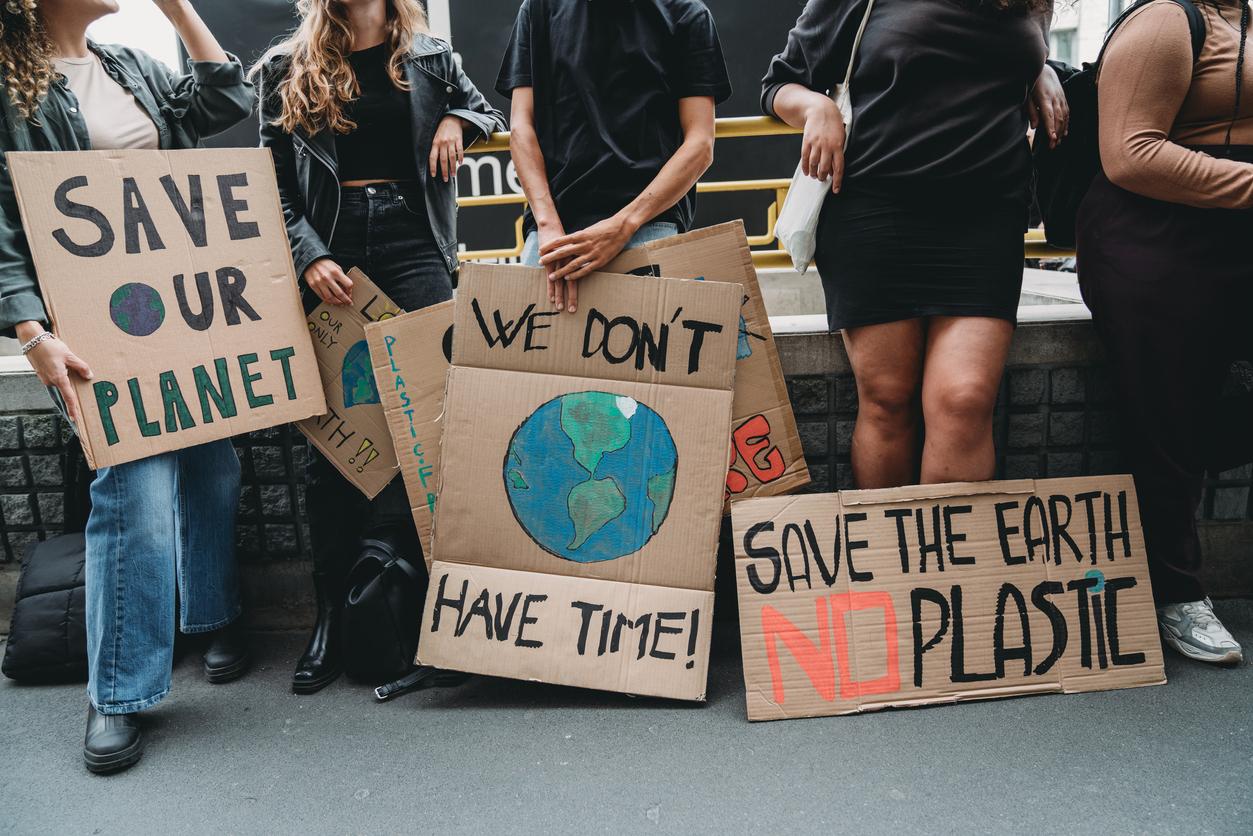What is Ecofeminism, and Why Does it Matter?
Published Oct. 5 2022, 4:04 p.m. ET

Ecofeminism explores the connection between women and nature.
We all know that our patriarchal society harms women and that capitalism isn’t exactly eco-friendly. But how are those topics tied together? Well, that’s exactly what ecofeminism examines.
Ecofeminism is a feminist theory that explores the way environmental degradation and the oppression of women are connected. The concept might seem intimidating, but it’s an important aspect of addressing the climate crisis.
Where did the term "ecofeminism" come from?
The term was first coined by French feminist, Françoise d'Eaubonne, in 1974. One of her missions was to bring attention to how women could participate in the ecological revolution.

People holding signs about the climate crisis.
Similar to feminism, ecofeminism has many different perspectives. The meaning originally established a broad connection between women and nature, but it transformed into something more philosophical in the late 1980s.
Now, ecofeminism not only explores the domination of women and nature, but it also criticizes Western male-biased views and comes up with different solutions to them.
One central tenet of this philosophy is value hierarchical thinking. You’re probably wondering, what on earth is that? Well, it’s not as complicated as it sounds.
Value hierarchical thinking is often explained as an Up-Down way of thinking. In this case of ecofeminism, men would be considered Up (greater value), and women would be considered Down (less value).
This way of thinking is part of what ecofeminists are trying to change.
Why is it important to understand ecofeminism?
By understanding the links between the oppression of women and the domination of nature, we can broaden our understanding of the climate crisis.

Capitalism can lead to over-consumption which contributes to more waste in landfills.
For example, we know that capitalism destroys the environment and causes inequality through the exploitation of workers. Many people might see these as two separate issues, rather than issues that perpetuate each other. In reality, addressing one of these issues requires addressing the other.
It’s important to know that social issues need to be recognized and solved in order to work on environmental issues. Ecofeminism is all about the need to liberate women in order to fully address the climate emergency.
How to be an advocate:
Advocating for ecofeminism is all about highlighting the connectivity of the issues people face. It means that we can’t keep upholding the value hierarchical way of thinking.

It's important to discuss ecofeminism with others.
A great way to be an advocate is simply by discussing ecofeminism with others and addressing toxic viewpoints (racism, sexism, homophobia, etc.). You can’t be an environmentalist without recognizing the challenges of marginalized groups.
One example of ecofeminism is the Chipko movement that happened in India in the 1970s.
A group of women from the Himalayan region of Uttarakhand wanted to protect their forests from logging, so they started hugging the trees to keep the loggers away.
The Chipko Movement was a nonviolent movement aimed at protection and conservation of trees and forests from being...
Posted by HISTORY on Saturday, March 25, 2017
Women in rural India protect trees from being logged.
The first protest in Mandal in 1973 worked and the logging permit was canceled, but the next protest wasn’t as simple. The very next year, over 2,000 trees were scheduled to be cut down in Reni.
When this announcement was met with disagreement, the government paid the men in the village to leave, which left the women alone. But when the loggers came face to face with the women, the women refused to leave the forest and the loggers had to withdraw.
This event led to the investigation of deforestation and a 10-year ban on commercial logging in the region.
These women leveraged their power and knowledge to accomplish something amazing. You can do the same!
Overall, being an ecofeminist means simultaneously fighting for environmental issues and equality, while also elevating marginalized voices.